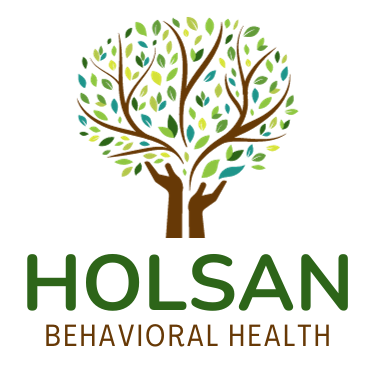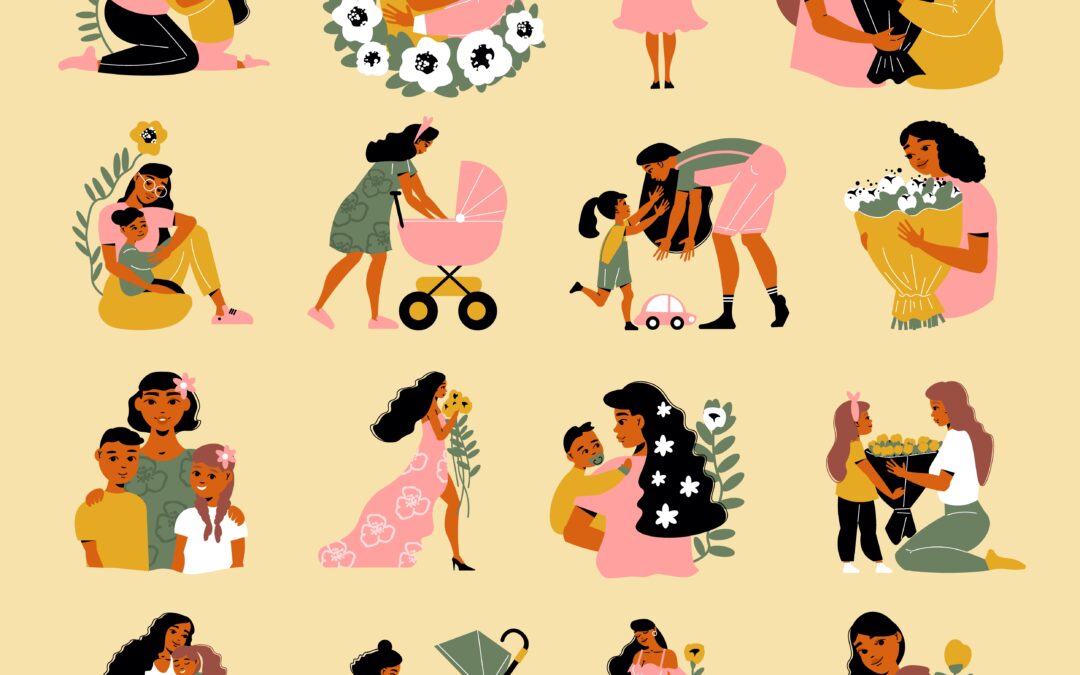Each May, we shine a spotlight on Maternal Mental Health, an essential but often overlooked part of a mother’s overall well-being. While pregnancy and motherhood are often portrayed as joyful experiences, the reality is that many mothers silently struggle with emotional and psychological challenges. From postpartum depression to anxiety and burnout, maternal mental health affects families, communities, and generations.
At Holsan Behavioral Health, we understand the unique emotional demands of motherhood. Our compassionate, evidence-based care helps mothers navigate mental health challenges and feel supported through every stage of parenthood.
In honor of Maternal Mental Health Awareness Month, let’s explore 5 essential ways to support and protect maternal mental health—whether you’re a mother yourself or part of her support network.
1. Recognize the Warning Signs
One of the biggest barriers to getting help is not recognizing when support is needed. Maternal mental health conditions can include:
- Postpartum depression (PPD)
- Perinatal anxiety or OCD
- Post-traumatic stress disorder (PTSD) after childbirth
- Baby blues that don’t go away after two weeks
Common signs include:
- Persistent sadness or hopelessness
- Feeling disconnected from the baby
- Excessive worry or panic attacks
- Difficulty sleeping or eating
- Thoughts of self-harm or harm to the baby
If these symptoms persist for more than two weeks or interfere with daily life, it’s time to seek professional support.
2. Normalize Mental Health Conversations
Stigma still surrounds mental health—especially for new mothers who may feel pressure to be happy all the time. Open, honest conversations can normalize the reality that motherhood is complex and emotional.
Encourage loved ones to talk about their feelings, and remind them it’s okay not to be okay. Social media, support groups, or therapy can also provide a judgment-free space to express emotions.
3. Encourage Rest and Self-Care
Motherhood often demands nonstop caregiving, leaving little time for self-nurturing. But rest and self-care are not luxuries—they’re necessities.
Encourage mothers to:
- Take short breaks throughout the day
- Sleep when the baby sleeps (when possible)
- Prioritize nourishing meals and hydration
- Engage in calming activities, even for just 10 minutes
Self-care helps replenish emotional reserves and reduce feelings of overwhelm.
4. Offer Practical Help
Even the smallest acts of support can make a huge difference. Ask how you can help instead of assuming.
Ideas include:
- Preparing a meal
- Watching the baby so mom can nap
- Helping with laundry or errands
- Accompanying her to a doctor’s appointment
These acts of service communicate care and reduce the burden that many new moms silently carry.
5. Seek Professional Mental Health Support
When emotional challenges persist, professional care can make all the difference. Therapy, support groups, and sometimes medication can help mothers process their experiences, reduce anxiety, and feel like themselves again.
At Holsan Behavioral Health, we offer supportive, individualized care for women at all stages of motherhood. Whether you’re facing postpartum depression or just feeling overwhelmed, our team is here to help you heal, grow, and thrive.
Why Maternal Mental Health Matters
According to the American College of Obstetricians and Gynecologists, as many as 1 in 5 women experience a maternal mental health disorder, yet many go undiagnosed or untreated. These conditions not only affect the mother but also impact child development and family dynamics.
By raising awareness, reducing stigma, and expanding access to care, we can ensure that no mother suffers in silence.
Final Thoughts
Supporting maternal mental health isn’t just a women’s issue—it’s a community effort. When we invest in the emotional well-being of mothers, we build stronger, healthier families.
If you or someone you love is navigating the emotional challenges of motherhood, don’t wait. Reach out to Holsan Behavioral Health today to speak with a caring mental health professional.
References:
- American College of Obstetricians and Gynecologists. (2021). Mental Health Disorders in Pregnancy. https://www.acog.org
- National Institute of Mental Health. (2023). Perinatal Depression. https://www.nimh.nih.gov/health/publications/perinatal-depression
- Postpartum Support International. (2024). Understanding Maternal Mental Health. https://www.postpartum.net

